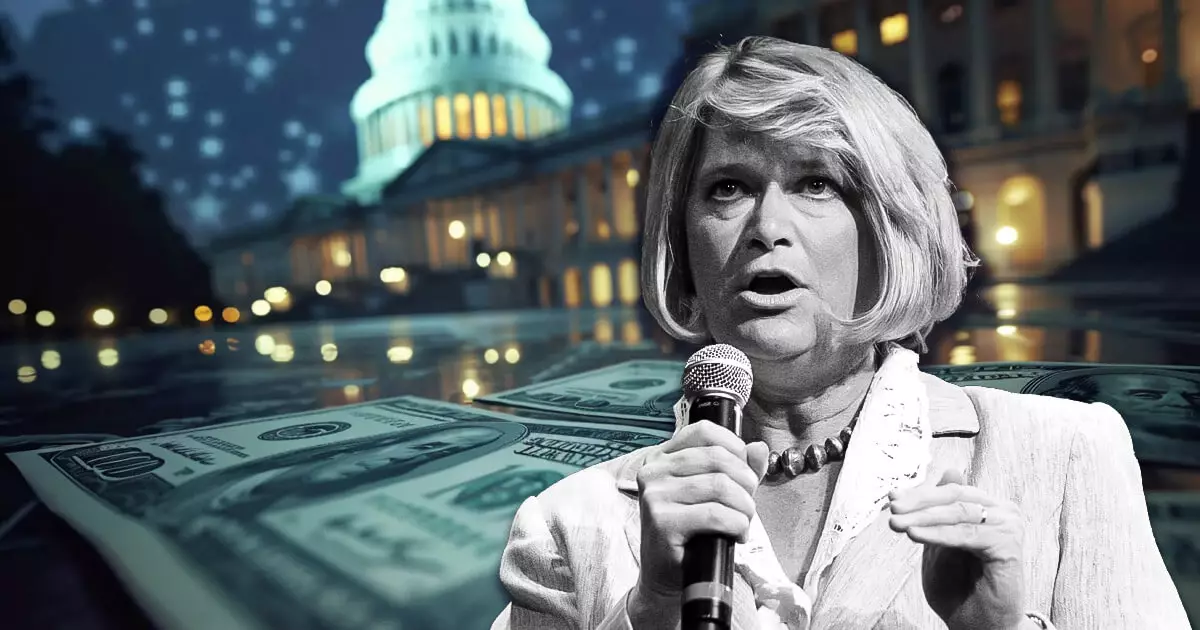The confirmation of Michelle “Miki” Bowman as Vice Chair for Supervision at the Federal Reserve marks a significant moment in the ongoing saga of cryptocurrency regulation in the United States. For decades, the approach to regulating digital assets has been lethargic and reactive, often hampered by political strife and a lack of cohesive vision. With a narrow Senate vote of 48-46 to confirm Bowman, there is newfound optimism among crypto advocates who regard this appointment as a potential game-changer that could usher in a much-needed transformation in the regulatory landscape.
The Signal of a Turning Point
Senator Cynthia Lummis aptly described Bowman’s confirmation as a “turning point” in crypto policy. This assertion could not be more relevant as the Senator has long been an outspoken advocate for digital assets and a supporter of innovation in the financial sector. Bowman’s previous experience as a Federal Reserve Governor since 2018 and her strong commitment to evidence-based regulation indicate that she might prioritize sensible frameworks over politically charged mandates. This is a refreshing shift and raises hopes that the regulatory environment that has previously stymied innovation will now be replaced by one that encourages growth and exploration within the crypto space.
Banking on Innovation
During her confirmation hearing, Bowman made a compelling case for allowing U.S. banks to embrace emerging technologies to enhance their competitive edge in a rapidly evolving landscape. The juxtaposition of traditional banking practices and modern technological advancements has been a significant hurdle for financial institutions hoping to engage with cryptocurrencies meaningfully. By advocating for “sensible innovation” over antiquated policies, Bowman is poised to foster an environment where banks can responsibly adopt crypto technologies, thus enriching their services and offerings.
Regulatory Clarity: A Crucial Demand
Industry stakeholders hardly need convincing of the importance of regulatory clarity, a sentiment that has been echoed countless times over the past few years. Trade organizations like the Crypto Council for Innovation, which represent heavyweights like Coinbase and Fidelity, have signaled their support for Bowman’s confirmation. They recognize her experience in community banking and willingness to engage with emerging technologies as vital assets in the quest for a clearer regulatory framework. This could result in banks feeling more secure in their choices concerning digital asset custody and settlement services, leading to enhanced participation in the crypto economy.
The Role of the Federal Reserve
While the Federal Reserve does not directly regulate cryptocurrencies, its influence on how the banking sector interacts with digital assets cannot be overlooked. Bowman’s new role gives her the authority to guide the Fed’s supervisory framework regarding banks’ participation in the crypto landscape. There is an urgent need for the Federal Reserve to modernize its approach, particularly in light of numerous bills poised to reshape the regulatory environment for digital assets. With Bowman in charge, many advocates are cautiously optimistic that a more open and structured approach will emerge, benefiting both the crypto sector and broader financial stability.
A Broader Debate and Future Prospects
The unfolding regulation discussions in Washington over stablecoins and digital asset market structures must also consider the pivotal role of Bowman’s leadership. It is evident that the Fed’s evolving posture toward fintech and crypto aligns with broader debates about innovation, competition, and regulatory effectiveness. By putting a seasoned advocate like Bowman at the helm of supervision, the cries for a well-structured and supportive framework are finally being heeded—a significant win for crypto enthusiasts and financial futurists alike.
Optimism Amidst Challenges
Despite the enthusiasm surrounding Bowman’s confirmation, it is essential to note that significant challenges remain. For one, the entrenched skepticism toward digital currencies, especially among traditional financial institutions, will not dissipate overnight. Furthermore, as the regulatory landscape continues to evolve, it will require cooperation between various arms of government and the private sector—a complex process that could still face delays and pushback. However, with Bowman’s pragmatic stance and commitment to innovation, there lies hope that the direction toward regulation will be one that fosters growth rather than stifles it.
In the grand tapestry of financial evolution, Miki Bowman’s appointment is a potent reminder that change is not just possible; it may already be on the horizon. Her leadership will play a crucial role in determining whether the United States can effectively harness the potential of blockchain technologies while maintaining robust financial security.

